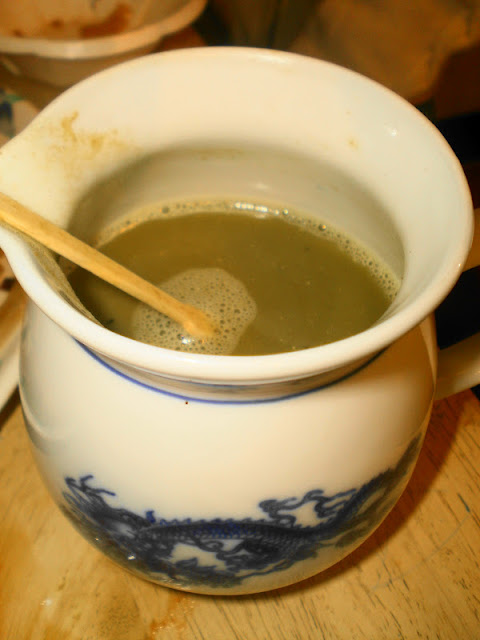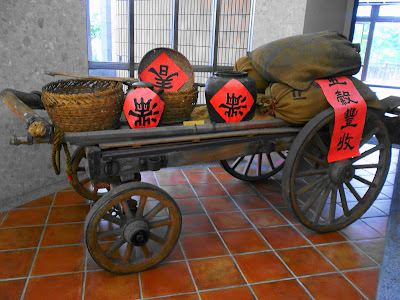You do not know how a violin sounds before you play it. You do not know how deep a river is before you go across it. You do not know if a new bottle leaks before you put water in it. You do not know if your lover loves you or not, but how to test it?
hien tsii mang ki mang ti in
vun shiui mang ko mang ti chhin
sin mai phun theu nan tset shiui
sin lien ko tsii nan tset sim
sin lien ko tsii nan tset sim
(a Hakka mountain song)
 |
| Hakka center in Tainan |
I first came aware of Hakka people and culture when I worked in Taipei some time ago. My then Taiwanese co-teacher was Hakka and could speak the language. When I first moved to Tainan my friend drove us to Meinong to see the fields of cosmos flowers fill the valley with white, pink flowers with this blue mountain backdrop. It was then that I ate some of my first Hakka wide rice noodles. Meinong is outside of Kaohsiung and it population is 95% Hakka and also has its own Hakka museum (as does all major cities in Taiwan.) Other large populations of Hakka in Taiwan are found around Hsinchu, like Beipu. The photos below are from a Hakka restaurant we had lunch at in Neiwan's old street, just outside of Hsinchu.
 |
| Hakka flat rice noodles |
 |
| Kiu nyuk (扣肉, sliced pork with preserved mustard greens |
 |
| lei (“pounded”) tea 擂茶 |
 |
| Hakka Parasols |
Last November my preschool class made a field trip to the Hakka Center in Tainan. Its located next to the big park down Yongua St heading towards Mitzokoshi. Its a small collection of Hakka farming tools, food, calligraphy and a map showing their migration and diaspora. |
| Me at the Tainan Hakka Center |
Resources:
http://www.gio.gov.tw/taiwan-website/5-gp/culture/hakkaint/
http://www.asiawind.com/hakka/
http://taiwanreview.nat.gov.tw/ct.asp?xItem=159424&CtNode=1337
http://www.hakkaonline.com/
http://www.mhps.ttct.edu.tw/hakkafa/hakka.htm
http://www.hakka.gov.tw/
Online Hakka lessons
http://www.chinalanguage.com/content/index.php?c=content&id=711
http://www.hakka.gov.tw/lp.asp?ctNode=408&CtUnit=173&BaseDSD=7&mp=233&ps=
http://guhy.csie.ntust.edu.tw/~hakka/
http://www.youtube.com/watch?v=23TQYaW1dpg
Online Hakka dictionaries
http://www.chinalanguage.com/dictionaries/hakka/
http://sii-tien.lomaji.com/
華語廣播-客家話 (Radio in Hakka)
http://big5.cri.cn/gate/big5/gb.cri.cn/chinese_radio/kejia.htm
BCC (中國廣播電台) - online radio in Mandarin, Taiwanese and Hakka
http://www.bcc.com.tw/
Taiwanese Hakka Association of the USA
http://www.softidea.com/twhakkausa/



No comments:
Post a Comment